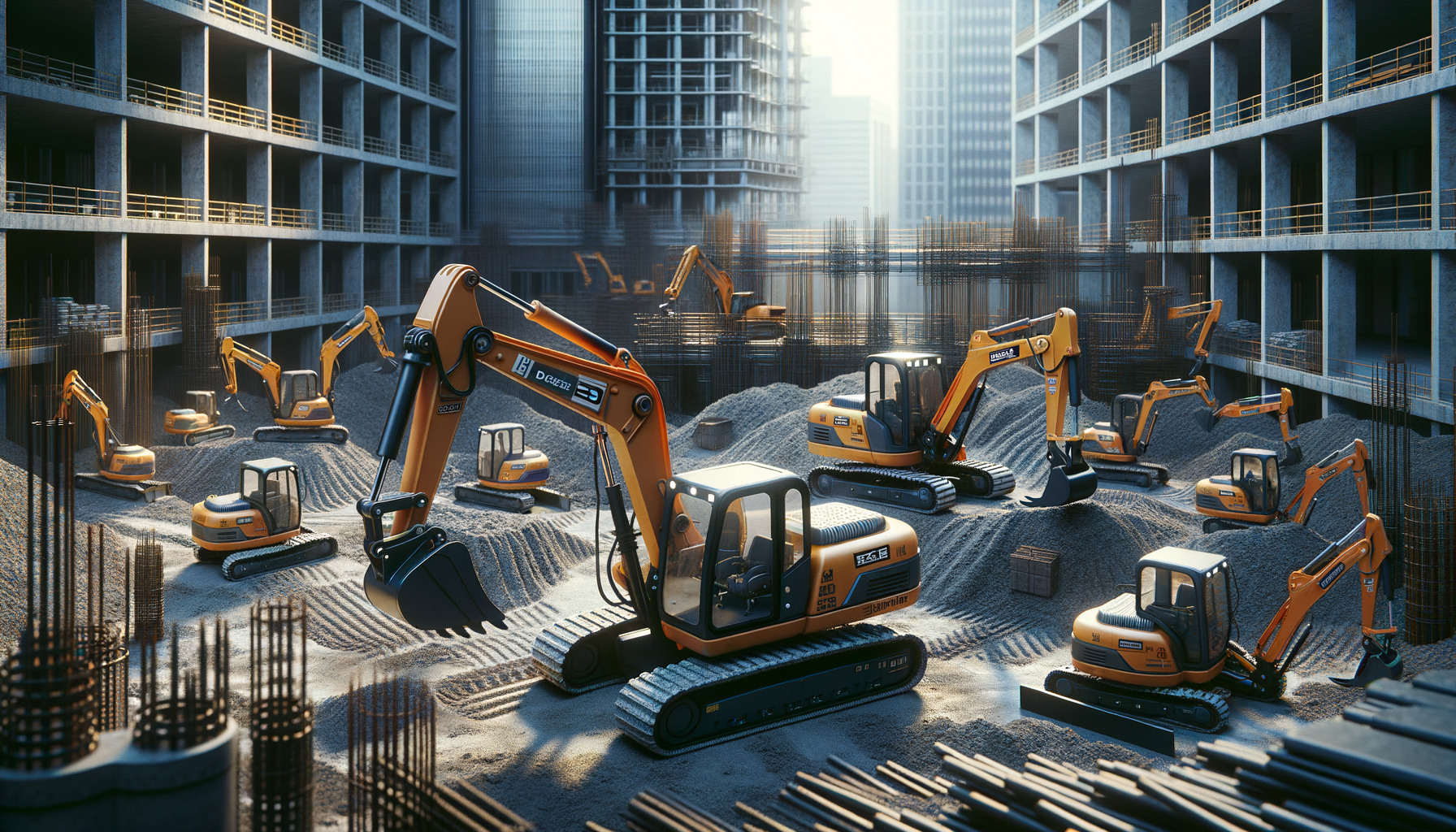Introduction to Mini Excavators
Mini excavators, often referred to as mini diggers, have become an indispensable tool in modern construction and agriculture. Their compact size and versatility make them ideal for a variety of tasks, from home improvement projects to farm maintenance. As urban areas expand and space becomes a premium, these machines offer a practical solution for working in confined spaces. Their ability to perform a multitude of tasks with different attachments makes them a valuable asset for both professionals and DIY enthusiasts.
Design and Features
One of the most appealing aspects of mini excavators is their compact design. Typically weighing between one to six tons, these machines are lightweight yet robust, allowing them to be easily transported between sites. Their small footprint enables them to operate in tight spaces, such as gardens, orchards, and barnyards, where larger machinery would be impractical. The hydraulic systems in mini excavators provide precision and power, reducing the physical strain on the operator and improving efficiency.
Key features of mini excavators include:
- Interchangeable attachments for various tasks
- Easy maneuverability in confined spaces
- Low fuel consumption for cost-effective operation
- Simple controls for minimal training requirements
These features collectively enhance the functionality and ease of use of mini excavators, making them a preferred choice for many small to medium-scale projects.
Applications in Construction and Agriculture
Mini excavators are renowned for their versatility, making them suitable for a wide range of applications. In construction, they are often used for digging foundations, trenching for utilities, and site preparation. Their ability to navigate restricted areas without causing damage to the surrounding environment is a significant advantage.
In agriculture, mini excavators are invaluable for tasks such as:
- Clearing debris and maintaining farm roads
- Digging irrigation channels
- Planting trees and managing orchards
The adaptability of mini excavators with various attachments, such as augers, breakers, and compactors, allows them to perform specialized tasks efficiently. This adaptability not only saves time but also reduces the need for multiple machines, thus lowering overall costs.
Economic and Environmental Benefits
Mini excavators offer significant economic benefits, particularly for small businesses and individual operators. Their low operational costs, due to reduced fuel consumption and maintenance requirements, make them an affordable option for many. Additionally, their compact size means they require less storage space, further reducing overhead costs.
From an environmental perspective, mini excavators contribute to sustainable practices by minimizing soil disturbance and reducing emissions. Their precision in operation ensures that only the necessary amount of earth is moved, preserving the surrounding landscape and ecosystem. This makes them an eco-friendly choice for environmentally conscious users.
Conclusion: The Future of Mini Excavators
As technology advances and the demand for efficient, compact machinery grows, mini excavators are set to play an even more significant role in construction and agriculture. Their ability to perform a variety of tasks with minimal environmental impact makes them a smart investment for the future. As families and small farms prioritize affordable automation, mini excavators emerge as the ultimate multi-tasker: big productivity, small footprint.
In summary, mini excavators offer a blend of efficiency, cost-effectiveness, and versatility that is hard to match. Their ongoing development and adaptation to new technologies will ensure they remain a cornerstone of small-scale construction and agricultural projects for years to come.








